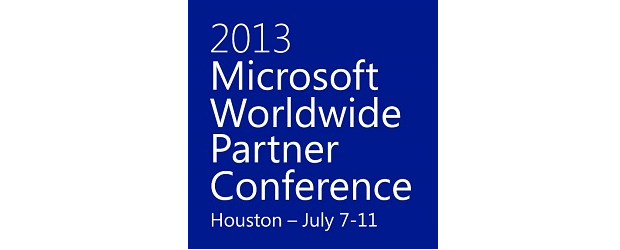HOUSTON – As his keynote at Microsoft’s Worldwide Partner Conference came to a close on Wednesday, global channel chief Jon Roskill dropped in an announcement that will impact all its partners: by January 2014, every competency in Microsoft’s partner program will have a cloud requirement baked in.
“We’ve been running these separate cloud programs, and I’m here to announce today that it’s all coming together this fiscal year. The cloud programs will come fully integrated into the MPN competencies and into the MPN subscriptions by January 2014,” said Roskill. “You’re going to see specific cloud support, training, assessments, sales and marketing tools all integrated into the competency model because we want every partner, every partner to be able to go out and have that cloud conversation with their customers.”
Every Microsoft executive at WPC from CEO Steve Ballmer on down has been driving home the importance of cloud to the success of Microsoft and, by extension, its partners. The vendor has been making major investments in its Azure platform, and Office 365 is seen as a key first step in Microsoft’s desire to grow from a software company to a devices and services leader. Both Office 365 and Azure each have a billion dollar run rate, and CRM and Intune are among the vendor’s other growing list of cloud plays.
Baking cloud into the partner program will require those partners that haven’t jumped into the cloud yet to do so if they want to keep their top Microsoft certifications, and the benefits that come with them.
“Right now is the time for us to double down on the cloud,” said Roskill. “We all know in business you need a door-opener, a reason to go in and talk to the customer. And cloud is that door-opener.”
Roskill stressed though that Microsoft isn’t abandoning its on-premises roots, and neither are its customers. Cloud doesn’t meet all needs, and on-premises isn’t going anywhere fast. He wants partners to take a hybrid cloud approach.
Following a meeting with Roskill, further details on the coming program changes were provided by James Alexander, a senior vice-president and analyst with the Info-Tech Research Group. All partners including traditional on-premises solution providers will need to prove competency in the cloud to renew their certifications. Additionally, they’ll have to meet a revenue requirement in the neighbourhood of $120,000 or more in annual cloud-related revenue.
“I don’t know if it’s all baked, but my feeling is ¼ of partners are on the cloud so the rest will have to get into the cloud if they want to stay Gold partners,” said Alexander. “But if you’re a Gold partner you’re building a large part of your whole practice around Microsoft, so I don’t think you’ll walk away from that because of a $120,000 revenue requirement. I think partners will do what partners do: they’ll complain, talk about how much investment they have to make, and at the end of the day, they’ll do it.”
The changes were endorsed by Dave Frederickson, vice-president of business development with Microsoft partner Long View. He said Long View has already been making those cloud investments and building a practice.
“Every customer is going to the cloud, and we want to lead that conversation,” said Frederickson. “We believe we’re well-suited because of our capabilities and position as an architectural company.”
In fact, Frederickson said the cloud is his first, second and third take-ways from WPC.
“The maturity of Microsoft’s cloud environments is prime time. It’s real, and it’s moving fast,” said Frederickson. “Customers have and will continue to go there. I think they have a great competitive offering in the marketplace that Long View fully supports and want to run alongside, and there’s really good opportunities for partners to grow in and make money.”





